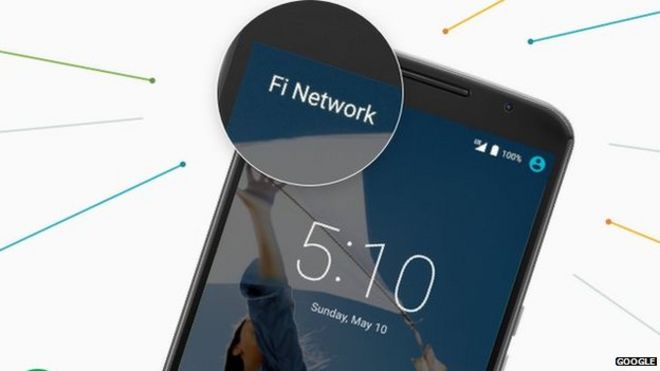Google launches Project Fi mobile phone network and ‘Mobilegeddon’ search tweak, Alibaba wants its merchants to just use smartphones, Facebook continues to make its money from mobile… and more…
Each week the MEF team curates mobile stories from around the world. Essential news you may have missed, the latest market insight & data nuggets, the Global Mobile News Round-up offers an instant international mobile content and commerce snapshot.
Global News Stories
 Google launches Project Fi mobile phone network
Google launches Project Fi mobile phone network
BBC
Google has detailed its plan to run a mobile phone network in the US. The firm will rent voice and data capacity from two existing operators – Sprint and T-Mobile – and use existing wi-fi hotspots, rather than build new infrastructure from scratch. Initially, Project Fi will only be offered to Nexus 6 handset owners. Google Fiber, the firm’s “ultra-fast” broadband service, is already seen as a disruptive force in the US telecoms market.
Alibaba wants its merchants to ditch PCs, just use smartphones
Tech In Asia
Alibaba wants its merchants to ditch their PCs. The ecommerce titan has rolled out new tools into its Taobao mobile app (pictured above) that allow the marketplace’s 8.4 million annual active merchants to run their stores solely from their phones. (Update: Swapped in the latest stat for Taobao sellers; the original article stated 7 million.)
The shift to mobile-only is optional for now, but an Alibaba representative tells Tech in Asiathat two million merchants have already opted for the smartphone-only method in the two weeks since the new tools have been available in beta. “The growing adoption of smartphones and mobile shopping in China means that online merchants should shift their focus from PC to mobile,” said Zhang Kuo, director of Alibaba Group’s mobile business division, in a statement.
 Mobile money transfers to Africa expected to hit $33 billion this year
Mobile money transfers to Africa expected to hit $33 billion this year
CIO
The amount of money sent to sub-Saharan Africa via mobile services is expected to hit $33 billion this year, reflecting the increasing number of mobile phone users on the continent.
There has been significant growth in mobile money remittances in Kenya, South Africa and Uganda recently but there has been stagnation in Nigeria, Africa’s largest telecom market by investment and subscription, according to WorldRemit, a global money transfer company. Still, Nigeria, which received $21 billion in 2014 via mobile money, accounts for two-thirds of remittances to the region.
 After Prepping Publishers, Google Set to Launch ‘Mobilegeddon’ Search Tweak
After Prepping Publishers, Google Set to Launch ‘Mobilegeddon’ Search Tweak
re/code
Starting tomorrow, Google will only play nice with websites friendly to mobile. The search engine is adjusting its algorithm to boost the rankings for sites that meet its criteria for mobile display and bury those that don’t.
It’s part of Google’s prolonged bid to get better at mobile, where it has lost its edge on search and ad serving. The algorithm changes will only apply to searches on smartphones, not tablets, and only to organic results, not ads. Some publishers are scrambling to meet the new demands. Portent, a market research company, tested 25,000 sites and found that 40 percent miss the mark. Thousands of small businesses (and even large ones) fall short as well.
 First Look At Uber’s Co-Founder’s Shopping Concierge “Operator”
First Look At Uber’s Co-Founder’s Shopping Concierge “Operator”
TechCrunch
Operator wants to “unlock the 90% of commerce that’s not on the Internet”, CEO Robin Chan tells me. After two years in stealth, Chan was finally willing to give TechCrunch a peek at his startup, which he sees as the convergence of the biggest themes in tech: mobile, messaging, and the on-demand economy.
Operator calls itself a “Request Network”. It’s an app that uses a network of human ‘Operators‘ to fulfill customer requests. It can handle a broad range of commercial requests. For now it’s focused on “high-consideration” purchases that may require expertise or have lots of options to choose from.
The app is currently in private beta, but Operator will be letting in more users off the waitlist soon, which you can sign up for here. Chan wouldn’t give specifics on when the public launch will happen beyond “When it’s ready”.
 Facebook continues to make most of its money from mobile
Facebook continues to make most of its money from mobile
Engadget
Facebook’s bet on mobile continues to pay off in absolute spades. The first quarterly earnings report of the year from Zuckerberg and crew lay testament to that, showing that a whopping 73 percent of its $3.32 billion in ad revenue now comes from mobile alone (Total revenue for the quarter was $3.54 billion). Its number of mobile users is also on the rise — out of Facebook’s 1.44 billion monthly active users,1.25 billion are on mobile, which is up 24 percent from this time last year. Perhaps more impressive is that the number of daily users — ie. its most engaged audience — has gone up as well; 936 million people visit Facebook everyday, with 798 million of them logging in from their phones.
Beacons could finally become a massive deal, thanks to Twitter
Business Insider
Beacons — small devices placed in retail stores that connect with smartphone apps using Bluetooth — are predicted by Business Insider Intelligence to directly influence more than $4 billion of US retail sales this year at top retailers (.1% of the total).
But right now, a big obstacle in the way of that number jumping higher is that for a consumer to receive a pop-up notification on their phone from a retailer or advertiser sent via beacon, they need to have opted in to receive those notifications (or ads) in a specific app. Right now, those apps are mostly limited to retailers’ own apps, or a small network of other apps that are not always likely to be on most consumers’ phones.
 Apple Pay cashes in on security campaign as PayPal sags: report
Apple Pay cashes in on security campaign as PayPal sags: report
Mobile Commerce Daily
Apple Pay has grabbed the competitive edge away from online payments pioneer PayPal just six months after the former’s launch, pointing to improved consumer understanding of mobile device security features and Apple’s success in communicating these improvements to the market, according to a 451 Research survey. Forty-five percent of respondents – up 5 points since December – said they planned to use Apple Pay, while 28 percent preferred PayPal, a four point drop, according to the survey of consumer mobile payment trends conducted in March by 451 Research’s ChangeWave service.
 University of Michigan children’s hospital targets obesity with telemedicine, wearables
University of Michigan children’s hospital targets obesity with telemedicine, wearables
Mobi Health News
The CS Mott Children’s Hospital at the University of Michigan is launching a new telemedicine program to help reduce childhood obesity. The hospital will work with Fruit Street, a recently-formed digital wellness and telemedicine platform, to provide a program for patients that integrates video visits with monitoring via wearable devices.
“Childhood obesity is a significant public health concern,” Dr. Susan Woolford, the medical director of the weight management program, said in a statement. “Many children with excess weight will grow up to be severely obese adults and will suffer from obesity-related illnesses such as diabetes and heart disease.
 4 mobile spaces Indonesian investors should keep an eye on
4 mobile spaces Indonesian investors should keep an eye on
Tech In Asia
Google finally launched the mobile friendly algorithm update it’s been warning us about for the last couple months. The press has dubbed it “Mobilegeddon,” and USA Today says it could be a true apocalypse for 40 percent of the world’s top websites. Basically, Google will start ranking sites without mobile optimization lower, therefore decreasing their visibility.
But it might not affect Indonesia as much as other countries, if information from firms like Baidu are to be trusted. Anyone familiar with the archipalego’s penetration rates for mobile versus broadband can tell you that Indonesia is a mobile-first market. This means local website builders know they must create mobile optimized sites for Indonesians straight out of the gate. Often, they just move straight to mobile app creation without even worrying about computers. Couple that with Jakarta being the social media capital of the world, and you’ve got an interesting mix of content flying around on phones and tablets in the world’s largest archipelago.
Global News Round-up – These articles are not written by MEF and do not represent any views of individuals, members or the organisation.





